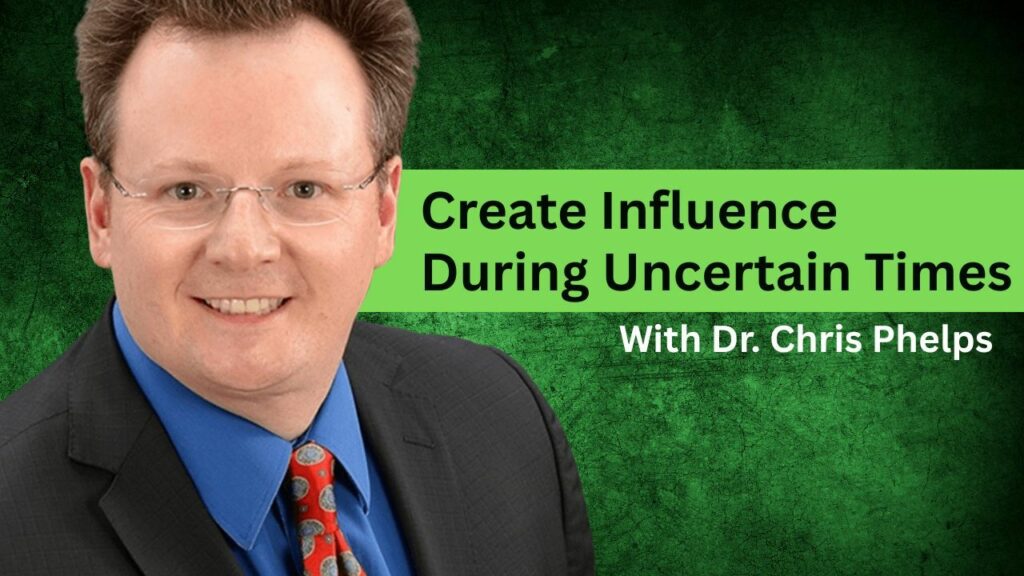
The Secret to Thriving in a Tough Economy: How Influence and Trust Win When Money Tightens
If you’ve been feeling the pressure of this economy lately, you’re not alone. I’ve had countless conversations with business owners, investors, and even people who’ve built massive success and the theme is the same: “Things feel harder than they used to.”
Marketing results are dipping, clients are hesitating, and sales cycles are stretching longer than ever. But what if the real problem isn’t the economy? What if it’s how people feel about the economy and how you respond to that?
In my recent conversation with Dr. Chris Phelps, CEO of the Cialdini Institute, we dove deep into the psychology of persuasion and what it takes to stand out right now. His insights blew me away, because they confirmed something I’ve been preaching for years: those who understand people always outperform those who chase trends.
Why People Aren’t Buying Like They Used To
Dr. Phelps pointed out something fascinating and a little alarming. The same messages that once worked brilliantly in marketing and sales are now falling flat. Scarcity, urgency, and guarantees used to grab attention; today, they’re met with skepticism.
We live in a time of digital overload. Between AI-generated content, scam texts, and endless “too good to be true” promises, people simply don’t know who to trust. And when trust disappears, what do people do? They freeze.
They choose to do nothing.
And when your audience does nothing, your business stalls.
The Power of Authority and Transparency
So how do you break through? Dr. Phelps shared one of Cialdini’s most powerful persuasion principles, Authority.
People naturally look to credible experts to guide their decisions. The key, though, isn’t just having credentials or experience. it’s combining expertise with trustworthiness.
In an age of uncertainty, people are drawn to those who are real, transparent, and credible. They want to see the human side of your business. That’s why honesty has become a superpower.
Dr. Phelps shared a classic example: Avis’s slogan, “We’re number two, but we try harder.” Instead of hiding their flaws, they led with them and gained massive trust in the process.
The same happened when L’Oréal said, “We’re expensive, but you’re worth it.”
Those brands didn’t try to sound perfect. They sounded authentic and that’s exactly what your audience needs from you right now.
Leadership Through Influence, Not Control
This principle doesn’t just apply to marketing it transforms leadership, too.
Dr. Phelps told a story about how he used to manage his dental team. Like so many business owners, he was stuck in micromanagement mode. Whenever he stepped away, things fell apart. The issue wasn’t effort, it was buy-in.
That’s when he applied another persuasion principle: Consistency.
When people make voluntary commitments, they’re far more likely to follow through. Instead of telling his team what to do, he invited them to help define the goals and choose their approach. Suddenly, ownership replaced compliance, and his businesses exploded with growth.
As leaders, we need to remember: people hate being told what to do. But they love being part of something bigger when they feel heard and valued. Influence creates alignment. Control creates resistance.
Turning “Needs” Into “Wants”
One of the most powerful insights from our talk was this: people rarely buy what they need they buy what they want.
As Dr. Phelps put it, “Unless it’s top-of-mind pain, people spend money on what they desire.”
Your job as a business owner or influencer is to ethically reframe the conversation so your audience wants what you offer. When they want it, they’ll find a way to make it happen — regardless of the economy.
That’s the secret that allowed Dr. Phelps to grow two struggling dental practices by over a million dollars each during one of the toughest financial periods in recent history. It wasn’t luck it was science-backed persuasion applied with integrity.
The Real Competitive Edge in 2025
Here’s the truth: markets change, technology shifts, and economies fluctuate. But human behavior? That stays remarkably consistent.
If you want to win in this economy, stop focusing on what’s uncertain and start focusing on what’s timeless: trust, influence, and human connection.
As Dr. Phelps reminded me, when you understand the psychology behind decision-making, the economy doesn’t control your outcomes. You do.
What if you could ethically influence people, and they thanked you for it? Learn how at cialdini.com/decevent – Use code MONEYRIPPLES for a special bonus.
